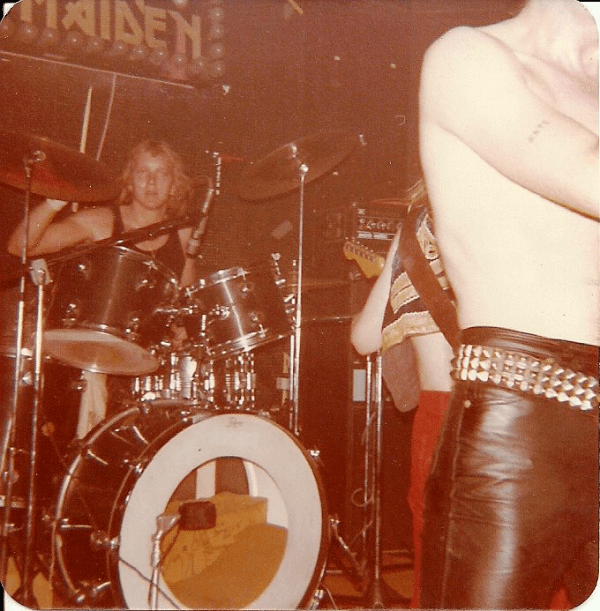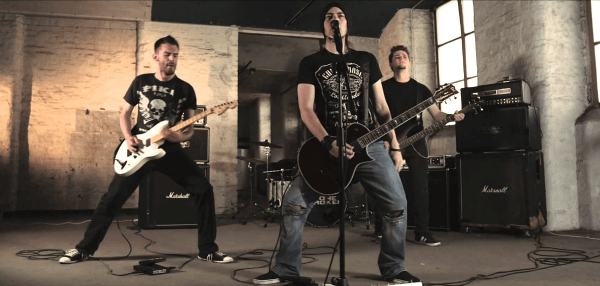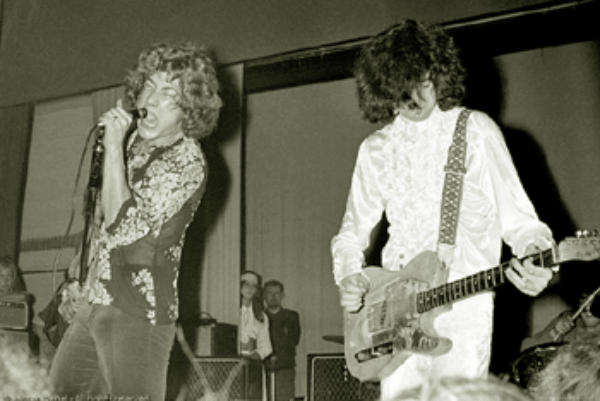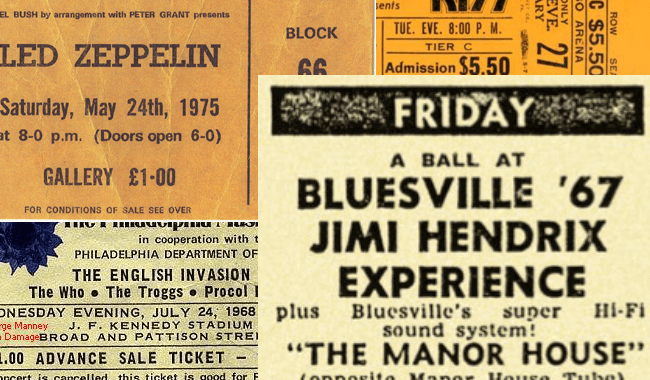The live music industry is so messed up.
New bands are destined to fail and at no point are given a fair chance because of ridiculous fees, expectations, charges and unethical deals that benefit anyone and everyone other than the band and band members themselves.
Firstly let me start by saying this is not meant as an exposé or the uncovering of a scandal, although it may feel like that to those who have no idea the kind of things that go on, but merely this is meant more of an observation and overview of a still potentially lucrative industry that is failing it’s very core … the artist(s).
Maybe, just maybe, we may somehow find some kind of resolution or find a way to eventually put things in place to help the new upcoming (and often struggling) band. New or/and upcoming bands aren’t designed to succeed. The module just isn’t there for them.

How can we help emerging bands like Rews?
Years ago through the record label ages, predominantly the 60’s through to the social media era of around 2003-5, labels would sign you, give the artist a singular or usually a multi-album deal and would throw a load of money at you, known as the advance, and with this money you had to exist … and believe me you could!
Major labels threw thousands and thousands at bands. With this money you had to eat, live, buy your gear, pay your rent, rehearse and pay for studio time, often an engineer and so on, but the money that was thrown around then was EXCESSIVE! (those 80’s style alcohol fuelled pool parties at hotels? … yep all funded by the advance!)
Yes it was an ‘Advance’ which meant if you stayed on the label and released moderately successful to very successful material you had to pay the money back. Many bands stayed broke when the advance money ran out as they didn’t initially generate enough sales. Def Leppard were famously broke until Pyromania (their 3rd album) shifted hundreds of thousands of copies first!
But profit opportunities were much more forthcoming if you were successful on major labels. If you weren’t, then that advance ended up turning into a kind of tax free gift!
Sure labels were greedy, they could shelve you, make you sell thousands and thousands of albums and give you near nothing back. They could do little to market you (Bearing in mind this was pre internet / social media so you couldn’t do it yourself).
They could tie both your hands behind your back, tell you that you had to sell 1 million albums while blindfolded and gagged in a dark room and whilst never doing a gig or tour, and then when you didn’t … they dropped you (terminated your contract).
Pretty ruthless right?
Yeah, but here’s the thing … all that money they threw at you in the beginning (that advance) that often added up to tens of thousands of local currency?? … you got to keep it. They didn’t demand it or want it back. They just cut you loose. The band could keep the money and run.
Banks wouldn’t and don’t do that. If your business fails well that’s too bad they still want your business loan back plus all the interest!
In the old days you may have had an album or two that didn’t sell much, or may never even have been released, mothballed by the label … but the money was free … straight up!

Iron Maiden on their stomping ground – at the Ruskin Arms, East Ham
Fast forward to the new world order.
There is hardly any money in albums and units shifted (just look at the ongoing debates and arguments over royalties on the likes of iTunes, Spotify etc). Long gone are the days of major record label deals with thousands in advance money thrown at you. Now you’re blessed to get your studio and recording time covered and a bit of pocket money for food and living expenses.
Even if you shifted 10 or 15,000 albums you would still make a small return based on the way the industry is set up and the way people consume music these days (i.e. they don’t flock to record shops to buy physical vinyl, tapes or CD albums etc). So it’s now widely accepted that there is near no money in record sales so you need to make a living from playing live, gigs, tours, merch sales etc.
Except, here is a big problem that cuts most bands off at the knees. The industry (i.e. other bands and venues) aren’t designed to give you a foothold in the industry, a leg up or anything like that, they are there to (without necessarily meaning to) wipe you out, because by default that is what happens to many and most bands.
What am I specifically referring to? Well none of these issues are exhaustive, there are many other things that can sink a band but here you have the tip of a rather large iceberg. Bands often have to ‘buy on’ to tours to be given the right to open for another act.
This was common place decades ago and until a few of years ago I thought (wrongly) that the New World Order (the internet / social media music age) had put paid to that and it was a more successful all-round cohesive, co-existing musical existence, but no.
Bands can pay thousands to join another band on a handful of dates opening for them doing 30 or 45 minute sets in often club sized venues, maybe up to civic/town hall size. If you’re looking at bigger venues for the tour then it will be a few more thousand. This is common place believe me. It goes higher and to much bigger bands.
A couple of years ago I suggested a band who were just about to release their debut album would be a great opening act for a multi-million selling arena band about to embark on another multi date arena tour. I was told they wouldn’t be able to afford it, as it was a ‘buy on’ and would cost thousands!
An established arena band with members all well set money and status wise charging new and upcoming bands to open for them? Seem fair or right to you? Not even the big dogs seem to want to give the puppies a chance!

Do upcoming bands like Stone Broken have a fair shot?
The carrot that is dangled in front of the bands paying to open up is the obvious and not so obvious:
1. Exposure
2. New audiences to play for and potentially gain
3. The chance to sell EPs, albums etc to an audience you might not have got chance to perform for had you not paid to be on the tour.
It’s the third point that is the interesting one. The chance to make money (ideally cover the money you’ve paid to ‘buy on’ and then go into some kind of profit) by selling merchandise at the shows. We’ve all seen it at just about any and every gig. Clothes, pictures, CD’s etc.
This is the part where certain venues do their best to squeeze (potentially ruin) the artist some more. They might not set out to intentionally but even if they thought about the inevitability of what would happen to most bands, they would no doubt carry on regardless.
Again this is common place, and not exclusive to one area or one size of venue. Many venues charge a commission to the band for the merchandise sold that they then take as a percentage. In short, the band agree by playing at said venue that they will hand over a percentage of their own merchandise sales (pick a number between 10 & 30% usually).
Just to add insult to injury some venues will tell them exactly where they can set up their merch stand (might be right at the back completely out of the way!) they might also tell them how much or how little can actually be on display and some may even go as far as to say they can’t sell it themselves and that some in house staff member has to sell it for them.
So in an industry where the only real chance of making any money is that you have to play live, you then have to ‘buy on’ to tours (and often singular big gigs) … pay to play, and then have a sizeable chunk of your merchandise sales taken from you by a venue you’re effectively indirectly having to pay to be in!
At best it’s unethical at worst it’s organised legal racketeering.
In the 60’s a lot of city clubs had to pay ‘Protection money’ to the local ‘firms’ (gangsters) so these firms would just let them go about their business without them smashing the place up. An organisation (for want of a better phrase) took a percentage of your hard work just to allow you to exist and continue to struggle, albeit now with a much smaller shrunken profit margin.
See a connection between the two scenarios but with a different era and legal set up?
It’s all so wrong and so unfair. It’s like most of the bands don’t have a chance before they start. The material may well be great, the passion and drive may be there but how do you survive not just potentially crippling debt but the capital to even stump up to try and get gigs?!
It’s so painfully ironic that the internet era, the beast that gave us new, exciting and numerous ways to market products is kind of responsible for the lack of investment and funding options going forward.
Sure, you don’t need to worry so much about record and distribution deals (downloads and the internet / social media take care of that) but funding, financing and just surviving seems near impossible.
It saddens and angers me in equal measures as someone who has championed new bands and new music for years now. I wish I had definitive solutions, answers or plans that could change this.

Would bands like Tax The Heat have fared better in the 1960s?
Between us, maybe we can all come up with something?
Maybe I’m an idealist but I would start by asking this:
A. Why can’t more established bands (i.e. arena size, multi million selling acts) agree to drop this ‘Buy on’ nonsense? Hand pick your opening acts. Give them a chance to shine and breathe without killing them financially before they start.
B. If smaller artists need to charge ‘buy ons’ to survive themselves as they are also part of the same vicious cycle as well, why can’t venues drop the commission charge on merchandise sold and either raise the overall ticket price moderately OR take a small percentage of the ticket sales after a pre- determined amount sold?
C. A return to the vintage age of the pub circuit. Could this era come full circle in the upcoming years despite the closure of not just many pubs but pub venues too? Now artists pay to play venues because they are seen as prestigious, or simply ‘nice’ for want of a better phrase.
I guess it’s like having a business and wanting to rent a nice office in a nice part of town so clients see you have standards and are doing well … but you have to pay for these standards. This sort of perception exists in music too.
Years ago it was a bit different, well a lot different. There was no music snobbery as much as there is now. It was more … all for one, in it together sort of thing. Decades ago the ‘pub circuit’ was a seriously well respected and prestigious circuit to be on. Despite already being well established in as late as 1966 it wasn’t uncommon for The Who or The Rolling Stones to play pubs and even AFTER the release of Led Zep I & II, it wasn’t rare to see Led Zeppelin playing pubs in 1969 – pubs such as The Manor House and Cooks Ferry Inn in London for example.

Led Zeppelin at Cooks Ferry Inn
These were good small venues (in some cases the pubs were bigger than some small club venues today) with great crowds, a great sound and a great up close and personal experience. Landlords just wanted everyone to have a good night all round. They were happy making the money over the bar, the brewery would be happy, the band would make some money on ticket sales (the bigger ones on a pre-arranged fee) what the band sold merch wise, the band kept. Everything took care of itself and everyone was happy.
You’re dealing with a pub landlord or maybe a couple of owners with the venue’s best interest at heart. You’re not dealing with a company placed manager who has to have a meeting about having a meeting just to see who fixes a broken toilet a week on Wednesday!
You don’t have to deal with third party companies working in venues that are run by another separate company with a venue manager that has to answer to about three or four other people before any kind of decision can be made on anything!
Why not go back to that straight-forward simple approach? It happened once it COULD happen again! Why can’t it all be reasonable and why can’t greed stop destroying everything because, let’s face it, that is what it comes down to, people wanting a much bigger slice of a rather sugary pie!
It’s too easy just to fob this off and say things like “times change” or “this is how it is now” etc. Things can change back, we can make positive changes if we want to. It’s not being idealistic or unrealistic; it’s small steps to possibly making the music industry and the live performance arena a better more productive place for everyone.
D. Why can’t we just treat people like we’d like to be treated!?
Like I said, the things I’ve pointed out aren’t exhaustive, far from it. There’s loads of other stuff going on to hinder bands and artists. It really is fast becoming the impossible dream. It shouldn’t be this way.
Let’s get our heads together and see what we can come up with?? Unfortunately it needs a bit more than “Support live music, go and see a local band” … although that is a good start.
See you out on the road …
Wyatt x

